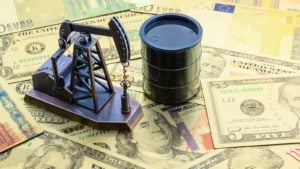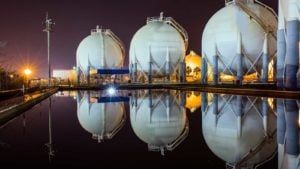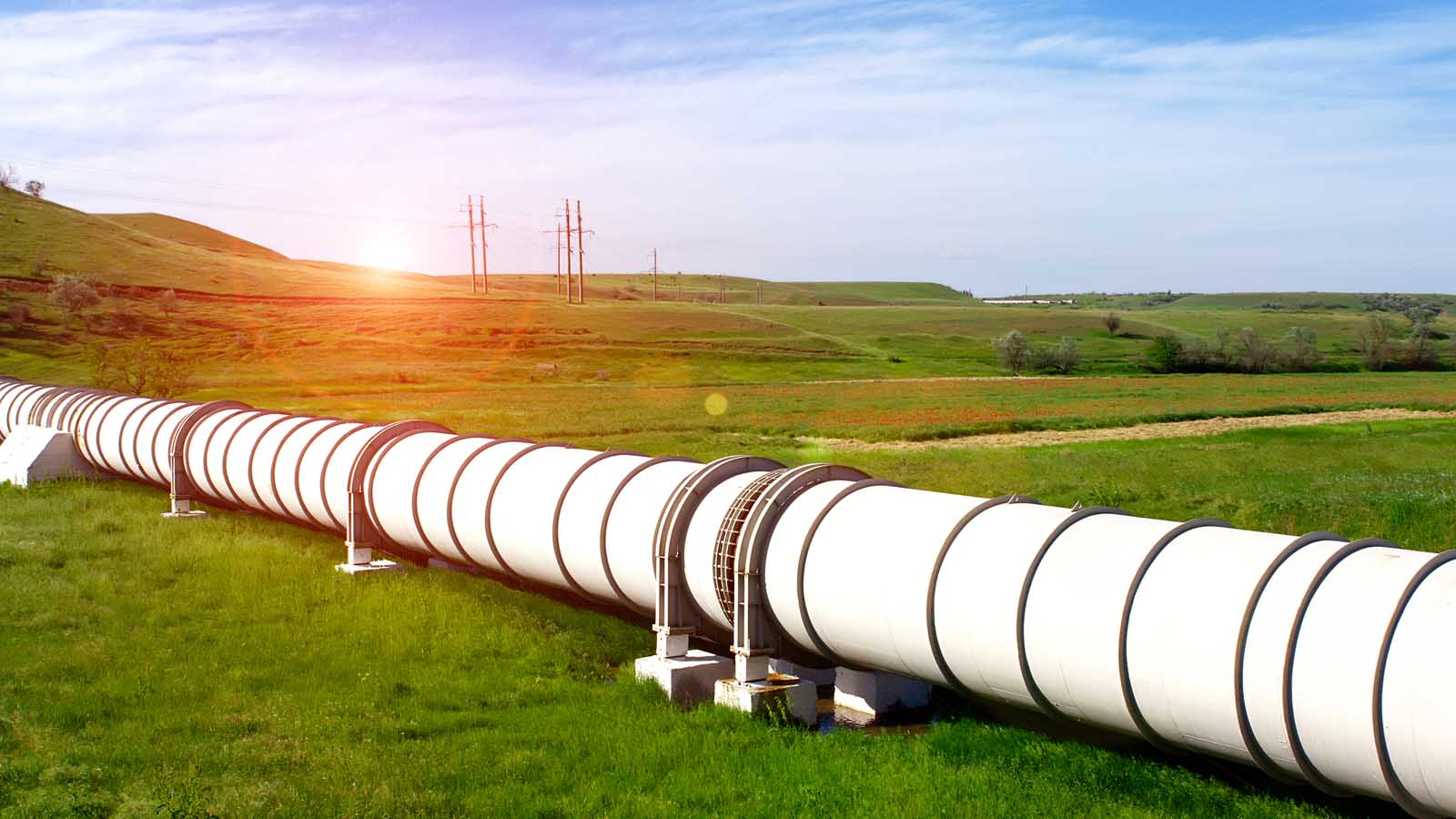Master Limited Partnerships — or MLPs for short — are highly appealing for income investors. That’s because they typically offer high yields. But investing in MLPs can still be a double-edged sword. Why? They are highly concentrated in the oil and gas industry, one of the hardest-hit segments of the economy over the past year.
Oil and gas stocks have been under intense pressure in recent months. A global supply glut has put pressure on commodity prices, and the pandemic has created a major dent in demand. As a result, many MLPs have announced distribution cuts to preserve cash flow — an outcome that investors want to avoid whenever possible. However, there are still worthwhile MLPs out there.
Before we look at any, though, we should first answer a question — what exactly are Master Limited Partnerships? What do they do?
MLPs were created to allow certain partnerships to issue publicly traded ownership interests. Most MLPs are located in the energy sector, focusing on midstream energy operations. In fact, midstream partnerships have grown to be roughly half of all energy MLPs.
The operating advantage for midstream companies is that they generate a steady stream of cash flow, without a high level of exposure to underlying commodity prices. Midstream MLPs own pipelines, terminals and other related storage and transportation assets. Likewise, midstream firms make money based on the volumes stored and transported through their systems. In this way, the companies operate similarly to a toll road.
MLPs are also tax-advantaged investment vehicles. That’s because the government taxes these partnerships differently than corporations — all money distributed from the MLP is taxed at the individual level.
Distributions are “passed through” because MLP investors are actually limited partners — called unit holders — not shareholders. Moreover, the money paid out to unit holders is called a distribution, not a dividend.
These distributions are a big reason why so many investors buy MLPs. It’s not uncommon to see MLPs yielding 5% or more. In the current climate — which has been extremely challenging for MLPs — some are now yielding close to 10%. But investors need to be aware of some of the potential pitfalls, too.
One risk of investing in these energy partnerships is that fossil fuel prices remain at multi-year lows. A global supply glut, combined with weak demand brought on by the novel coronavirus, has sent West Texas Intermediate (WTI) crude oil prices below $40 per barrel. While midstream MLPs are somewhat insulated from these swings, most still have some exposure to the underlying commodity price.
The other major risk for MLPs is debt. Midstream energy firms have historically utilized debt in order to finance the construction of pipelines and other assets. But in a now weak energy sector, cash flow is falling below what’s needed to sustain expenditures, debt repayment and distributions. And because debtholders are superior to equity holders in the capital structure, many of these partnerships have had to cut their distributions recently. Therefore, investors should avoid midstream MLPs with low-quality assets, excessive levels of debt, or both.
Fortunately, though, there are still some high-quality MLPs to buy on the market. Thanks to strong assets and healthy balance sheets, these three MLPs have maintained their distributions, and are still attractive prospects for any income investor.
- Enterprise Products Partner (NYSE:EPD)
- Magellan Midstream Partners (NYSE:MMP)
- NextEra Energy Partners (NYSE:NEP)
MLPs to Buy: Enterprise Products Partners (EPD)

Enterprise Products Partners is an oil and gas storage and transportation company with high-quality assets — including 50,000 miles of pipelines — making it one of the smarter MLPs to buy.
EPD has storage capacity of “260 MMBbls [million barrels] of NGL, petrochemical, refined products and crude oil.” As for natural gas storage, it currently has a capacity of 14 billion cubic feet. Finally, it also owns a number of natural gas processing facilities, deep-water docks and more.
Despite the pandemic, EPD stock has held up well over the course of 2020, thanks to these assets. In the third quarter, the company reported a 1.8% year-over-year increase in adjusted EBITDA. Third-quarter distributable cash flow (DCF) remained steady at $1.6 billion.
Enterprise Products also has a high yield of over 10.7%, which still appears to be secure. The company generated a distribution coverage ratio of 1.7 times in the most recent quarter, with “$669 million of retained DCF.”
What’s more, EPD has increased its distribution for 21 years in a row, an impressive track record given that so many MLPs have had to cut distributions. The company should also continue to increase its payout going forward, as it is slashing costs to preserve cash. In its Q3 report, EPD predicted 2021 and 2022 growth capital investments of “$1.6 billion and $800 million, respectively,” compared to an expected $2.9 billion in 2020.
Another operating advantage for Enterprise Products is its pristine balance sheet. EPD has credit ratings of “BBB+” from Standard & Poor’s (S&P) and “Baa1” from Moody’s, which are better than most MLPs.
Magellan Midstream Partners (MMP)

Magellan Midstream is another great MLP to buy, with the vast majority of its cash flows not exposed to oil prices. According to the company, approximately 85% of its operating income is derived from fee-based activities, which are not subject to pricing fluctuations.
Magellan has two major operating segments — refined products, which represents 62% of annual operating income, and crude oil, which generates the remaining 38% (Slide 4). The company’s refined products system consists one of the longest refined petroleum products pipeline in the United States. That’s 9,800 miles of pipe, 54 terminals and 46 million barrels of storage capacity.
Needless to say, the size and scale of MMP’s asset network is a major competitive advantage. It provides for steady growth through tariff increases. Magellan’s crude oil segment also includes “2,200 miles of crude oil pipelines,” with 37 million barrels of total crude oil storage.
In the most recent quarter, Magellan’s distributable cash flow declined a little under 16%, reflecting suppressed demand for refined products caused by the pandemic. However, the company has noted improved demand since then. It kept guidance intact for DCF of $1.025 billion for the full year. Further, MMP intends to maintain its quarterly distribution for the rest of the year, with a coverage ratio of 1.11 times for 2020.
Like Enterprise Products, MMP stock benefits from its strong balance sheet with a “BBB+” rating from S&P. It also had a leverage ratio (generally defined as net-debt-to-adjusted-EBITDA) of 3 times as of Jun. 30 (Slide 10). That’s below the level of many other MLPs. And the company has no significant debt maturities until 2025.
Maybe most importantly, though, MMP stock has an impressive distribution history. Before the pandemic, Magellan had increased its distribution for 70 consecutive quarters. Of course, Magellan froze its increases with the onset of the novel coronavirus. But the distribution still appears safe (and highly attractive) at a current yield of 11.6%. On top of that, the company will likely return to growing its distribution after the pandemic is over.
NextEra Energy Partners (NEP)

NextEra Energy Partners is a growth-oriented MLP formed by NextEra Energy, Inc. (NYSE:NEE). The MLP acquires, manages and “owns interests in wind and solar projects in the U.S. as well as natural gas infrastructure assets in Texas and Pennsylvania.” This makes it one of the more attractive MLPs to buy.
NEP has a high-quality and diversified portfolio of assets. These include over 5,300 megawatts of renewable capacity, approximately 86% of which is derived from wind with the remaining 14% from solar. The company also operates 4.3 billion cubic feet of natural gas pipeline capacity, with over 700 miles of pipeline.
Through the third quarter of 2020, NEP generated 16% year-to-date growth in adjusted EBITDA and 50% growth in cash available for distributions. This strong growth has benefited unit holders with aggressive distribution increases. In fact, NextEra’s most recent “distribution of $0.595 per common unit” represents 15% growth from the same payout last year.
What’s more, NEP stock is in a position to continue its growth moving forward. This is because the renewable energy boom is still in early stages. NextEra has also recently completed multiple projects that will certainly give it a boost. For example, in Q3 the company repowered its 175-megawatt Northern Colorado wind project (Page 2). Additionally, the backup compression capacity on its Texas pipelines just reached commercial operation.
NextEra has an almost 3.7% yield, which is below many other MLP yields. But the trade-off is that NEP’s payout is highly secure, and investors also receive great distribution growth. The company has a projected payout ratio of approximately 70% for 2020, leaving plenty of room for continued increases. NEP expects to increase its distribution by 12% to 15% per year through 2024.
On the date of publication, Bob Ciura did not have (either directly or indirectly) any positions in the securities mentioned in this article.
Bob Ciura has worked at Sure Dividend since 2016. He oversees all content for Sure Dividend and its partner sites. Prior to joining Sure Dividend, Bob was an independent equity analyst. His articles have been published on major financial websites such as The Motley Fool, Seeking Alpha, Business Insider and more. Bob received a Bachelor’s degree in Finance from DePaul University and an MBA with a concentration in Investments from the University of Notre Dame.
